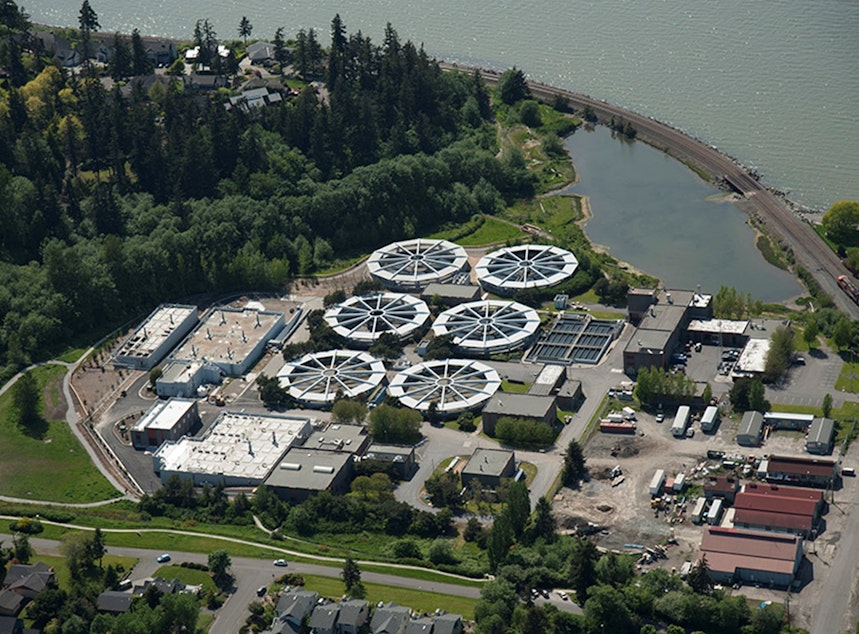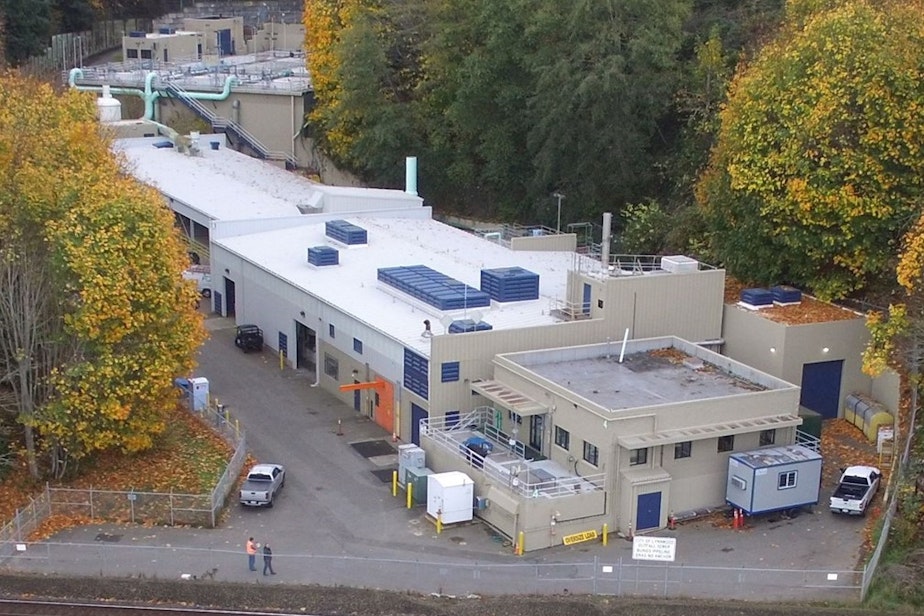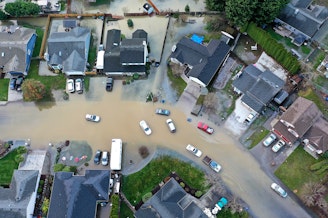Sewage burning? Yes, it’s a thing in Western Washington

Four cities in Western Washington burn their sewage sludge: Anacortes, Bellingham, Lynnwood, and Vancouver, according to the Environmental Protection Agency.
The EPA announced Wednesday that Lynnwood was paying a $550,259 fine for air pollution from its sewage incinerator.
Lynnwood officials say a pollution scrubber at the city’s wastewater treatment plant didn’t always work as planned, a frustrating experience for its plant operators.
Pollutants that Lynnwood’s incinerator sent aloft in excessive amounts included soot, carbon monoxide, and hydrochloric acid.
To comply with the federal Clean Air Act, the city of Lynnwood plans to stop burning sewage sludge by May 31.
For the next five years, instead of being burned up, Lynnwood sewage sludge will be hauled to a landfill while the city designs a new wastewater treatment plan, Lynnwood spokesperson Nathan MacDonald told Northwest Public Broadcasting.
Sponsored
“Wastewater treatment plants are complex and expensive facilities,” Lynnwood Mayor Christine Frizzell said in a press release announcing the fine in November.
“We are disappointed that the law requires such a substantial penalty with ratepayer funds going to the U.S. Treasury instead of being invested back into our community.”

Bellingham officials had planned to replace the city’s sewage sludge incinerator with digesters that would cut the city government’s planet-heating carbon emissions by nearly half, but they abandoned that project in 2022 due to its estimated $1 billion cost.
The city now plans to spend some $541 million to repair and upgrade its aging Post Point Wastewater Treatment Plant while searching for replacement technology for its incinerator, according to Cascadia Daily News.
“Incineration uses equipment installed in the 1970s that is very expensive to maintain and repair, extremely difficult to permit, and burns rather than recovers resources,” the city of Bellingham’s website states.
Vancouver officials say they have no immediate plans to stop incinerating sludge.
City of Vancouver spokesperson Nicole Walters said the city’s sludge incinerator, first fired up in 2000, has about 10 years left in its expected lifespan. After some problems with a mercury-removal system installed in 2016, Walters said the incinerator is now in compliance with mercury and other emissions limits.
According to EPA’s National Emissions Inventory, burning Vancouver’s sewage sludge released 33 tons of volatile organic compounds, 3 tons of nitrogen oxides, 3 tons of particulates, half a ton of hydrogen sulfide, and 4 pounds of mercury into the air in 2020.
Sponsored
Anacortes officials did not respond to information requests on Friday.
According to the EPA, sewage sludge is incinerated at 86 facilities in 24 states, with New York, Ohio, and New Jersey having the largest number of incinerators.




